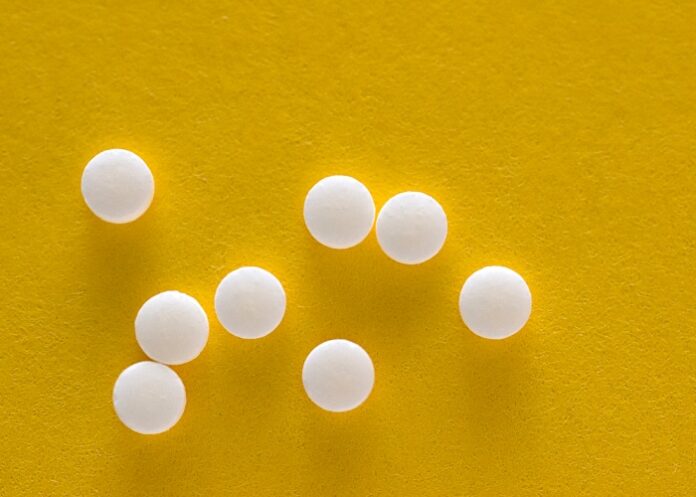Artificial sweeteners (especially aspartame and acesulfame-K), which are used in many food and beverage brands worldwide, are associated with increased cancer risk, according to a French study.
The research by Charlotte Debras and Mathilde Touvier at the French National Institute for Health and Medical Research (Inserm) and Sorbonne Paris Nord University, France, and colleagues suggests that some artificial sweeteners are associated with increased cancer risk.
Numerous food products and beverages containing artificial sweeteners are consumed by millions of people daily. However, the safety of these additives has long been a subject of debate.
To evaluate the potential carcinogenicity of artificial sweeteners, researchers analysed data from 102,865 French adults participating in the NutriNet-Santé study. This study is an ongoing web-based cohort initiated in 2009 by the Nutritional Epidemiology Research Team (EREN).
Participants enrol voluntarily and self-report medical history, sociodemographic, diet, lifestyle, and health data. Researchers gathered data concerning artificial sweetener intake from 24-hour dietary records. After collecting cancer diagnosis information during follow-up, they conducted statistical analyses to investigate the associations between artificial sweetener intakes and cancer risk. They also adjusted for a range of variables including age, sex, education, physical activity, smoking, body mass index, height, weight-gain during follow-up, diabetes, family history of cancer, as well as baseline intakes of energy, alcohol, sodium, saturated fatty acids, fibre, sugar, whole-grain foods, and dairy products.
The researchers found that enrolees consuming larger quantities of artificial sweeteners, particularly aspartame and acesulfame-K, had higher risk of overall cancer compared with non-consumers (hazard ratio 1.13, 95% confidence interval 1.03 to 1.25). Higher risks were observed for breast cancer and obesity-related cancers.
The study had several important limitations; dietary intakes are self-reported. Selection bias may also have been a factor, as participants were more likely to be women, to have higher educational levels, and to exhibit health-conscious behaviours.
The observational nature of the study also means that residual confounding is possible and reverse causality cannot be ruled out. Additional research will be required to confirm the findings and clarify the underlying mechanisms.
According to the authors, “Our findings do not support the use of artificial sweeteners as safe alternatives for sugar in foods or beverages and provide important and novel information to address the controversies about their potential adverse health effects. While these results need to be replicated in other large-scale cohorts and underlying mechanisms clarified by experimental studies, they provide important and novel insights for the ongoing re-evaluation of food additive sweeteners by the European Food Safety Authority and other health agencies globally.”
Debras adds, “Results from the NutriNet-Santé cohort (n=102,865) suggest that artificial sweeteners found in many food and beverage brands worldwide may be associated with increased cancer risk, in line with several experimental in vivo / in vitro studies. These findings provide novel information for the re-evaluation of these food additives by health agencies.”
Study details
Artificial sweeteners and cancer risk: Results from the NutriNet-Santé population-based cohort study
Charlotte Debras , Eloi Chazelas, Bernard Srour, Nathalie Druesne-Pecollo, Younes Esseddik, Fabien Szabo de Edelenyi, Cédric Agaësse, Alexandre De Sa, Rebecca Lutchia, Stéphane Gigandet, Inge Huybrechts, Chantal Julia, Emmanuelle Kesse-Guyot, Benjamin Allès, Valentina Andreeva, Pilar Galan, Serge Hercberg, Mélanie Deschasaux-Tanguy, Mathilde Touvier.
Abstract
Background
The food industry uses artificial sweeteners in a wide range of foods and beverages as alternatives to added sugars, for which deleterious effects on several chronic diseases are now well established. The safety of these food additives is debated, with conflicting findings regarding their role in the aetiology of various diseases. In particular, their carcinogenicity has been suggested by several experimental studies, but robust epidemiological evidence is lacking. Thus, our objective was to investigate the associations between artificial sweetener intakes (total from all dietary sources, and most frequently consumed ones: aspartame [E951], acesulfame-K [E950], and sucralose [E955]) and cancer risk (overall and by site).
Methods and findings
Overall, 102,865 adults from the French population-based cohort NutriNet-Santé (2009–2021) were included (median follow-up time = 7.8 years). Dietary intakes and consumption of sweeteners were obtained by repeated 24-hour dietary records including brand names of industrial products. Associations between sweeteners and cancer incidence were assessed by Cox proportional hazards models, adjusted for age, sex, education, physical activity, smoking, body mass index, height, weight gain during follow-up, diabetes, family history of cancer, number of 24-hour dietary records, and baseline intakes of energy, alcohol, sodium, saturated fatty acids, fibre, sugar, fruit and vegetables, whole-grain foods, and dairy products. Compared to non-consumers, higher consumers of total artificial sweeteners (i.e., above the median exposure in consumers) had higher risk of overall cancer (n = 3,358 cases, hazard ratio [HR] = 1.13 [95% CI 1.03 to 1.25], P-trend = 0.002). In particular, aspartame (HR = 1.15 [95% CI 1.03 to 1.28], P = 0.002) and acesulfame-K (HR = 1.13 [95% CI 1.01 to 1.26], P = 0.007) were associated with increased cancer risk. Higher risks were also observed for breast cancer (n = 979 cases, HR = 1.22 [95% CI 1.01 to 1.48], P = 0.036, for aspartame) and obesity-related cancers (n = 2,023 cases, HR = 1.13 [95% CI 1.00 to 1.28], P = 0.036, for total artificial sweeteners, and HR = 1.15 [95% CI 1.01 to 1.32], P = 0.026, for aspartame). Limitations of this study include potential selection bias, residual confounding, and reverse causality, though sensitivity analyses were performed to address these concerns.
Conclusions
In this large cohort study, artificial sweeteners (especially aspartame and acesulfame-K), which are used in many food and beverage brands worldwide, were associated with increased cancer risk. These findings provide important and novel insights for the ongoing re-evaluation of food additive sweeteners by the European Food Safety Authority and other health agencies globally.
See more from MedicalBrief archives:
Artificial sweeteners found to be toxic to gut microbes
Diet drinks increases stroke risk by 23% in post-menopausal women
Study contradicts earlier findings on saccharin-for-sugar substitution and diabetes
Artificial sweeteners may leave a bitter aftertaste

